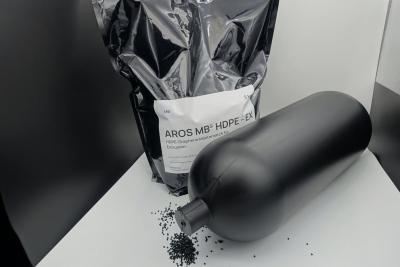Swedish startup Graphmatech has launched its AROS Polyamide-Graphene composites, which are reported to reduce hydrogen leakage by 83% compared to traditional commercial storage solutions. The graphene-enhanced material will be dedicated to hydrogen storage and transport applications. Graphmatech expects the solution to be implemented in approximately 1,000 light commercial vehicles (LCVs) and 500 heavy commercial vehicles by 2027.
The composite combines polyamide grades with graphene, “effectively blocking hydrogen from escaping while also making the plastic stronger”. Additionally, Graphmatech secured SEK 10 million (almost USD$949,000) from the Swedish Energy Agency to support the development and deployment of a modular mobile pilot-scale extrusion line for its polymer graphene materials designed for hydrogen applications.
With just under $1 million secured, the Uppsala University spin-out can develop, test, demonstrate and certify type-IV pressure vessels for hydrogen storage and pipes for hydrogen transportation. The project aims to verify the innovative and modular extrusion line at a pilot scale under full operating conditions.
It was explained that AROS Polyamide-6 Graphene will not only reduce leakages by up to 83%, but also demonstrate a 98% increase in tensile modulus and 38% higher ultimate strength compared to commercial solutions. Furthermore, just a small amount (4%) of AROS Polyamide-11 Graphene can reduce hydrogen permeability by 68%, increase elongation by 160% and enhance impact resistance by 12% at room temperature.
